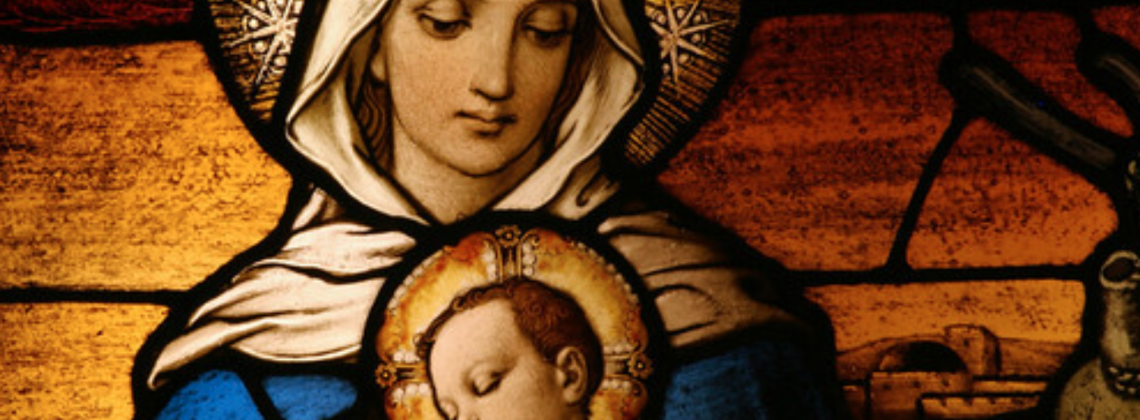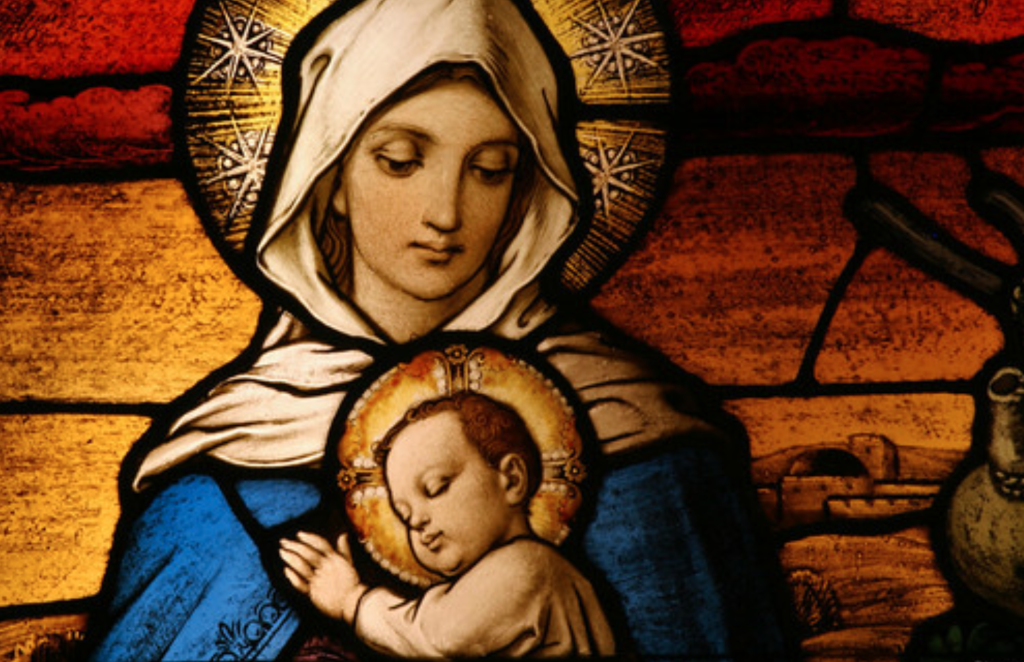

A writer remembers Christmas (in July)
I was born during the great Modernist-Fundamentalist controversy in America. Denominations split in the 1940s, 50s, and 60s over the issue of liberalism and especially how to read the Bible. My father and mother came down on the side of fundamentalism, which meant they left the mainline United Presbyterian Church and joined a much smaller dissident denomination called The Bible Presbyterian Church after my father returned from World War II. One consequence of this decision was that my parents and other folks like them were very suspicious of other Christians. We would not associate with so-called Christians who differed from us on issues of Holy Scripture, the deity of Jesus Christ, the end of the world, and social mores like dancing and the consumption of alcohol. We acted on the biblical principle “Come out from among them and be ye separate.”
My father was a pastor, and my parents didn’t allow their children to miss any activity that went on in our church. Every Sunday we attended Sunday School, then the morning worship service, youth group at 6:00 pm, then Sunday evening service at 7. Every Wednesday we attended prayer meeting—even though we were the only children there. If there were any special services, like missionary conferences or evangelistic meetings, we would also be there—no exceptions. Not all these meetings were horrible; in fact, some of these events in themselves were quite enjoyable. What made me resent church at times was simply that it was required. We had no choice about whether or not we would attend. We were the pastor’s children.
My mother shocked me one Sunday afternoon when I was in third grade. I was in my room reading (one of the permitted activities), when my mother came in and sat on the bed. “Would you like to go hear Handel’s Messiah?” she asked. I was intrigued—I had heard a couple of choruses from Messiah on the radio.
“When?”
“Tonight at 7.”
“Where?”
“At the Presbyterian church on Broad Street.”
I was confused. My mother was asking me to attend another church—and a very liberal one—on Sunday evening and miss our own evening service? And it was just going to be she and I? “Sure!” I said.
At 6:45 we left the house for the ten-minute walk to the big church on Broad Street. I hesitated a bit before entering. I had never been in this church in the two years we lived in Grove City, PA. It was forbidden territory, and a physically imposing building to boot: tall with a very large steeple, all in stone, nothing like our little wooden church.
We ended up in the balcony. I can’t remember why. Maybe the church was full by the time we arrived and there was no room on the main floor. More likely, my mother felt uncomfortable about possibly being seen there and chose the balcony as the least conspicuous spot. But here my mother and I were, sitting high in the balcony of a strange church, looking down the long nave at a real orchestra tuning its instruments in front of a huge stained-glass window. This was way more than I was prepared for. Everything was huge, beautiful—nothing like what I was used to in church. It was OZ!
After just a minute or so the chorus took its place, the conductor entered, and the performance began. I can’t recall if they did the entire oratorio or only the Christmas sections. All I can remember is being overwhelmed by the power and beauty. My favorite piece was “For Unto Us A Child Is Born.” My mother had a good soprano voice. But even at her best she couldn’t sing like these sopranos, so liltingly, with so little effort. It was like ice skating with a voice. And when the altos, tenors and basses joined to sing “Wonderful counselor, the mighty God, the everlasting Father, the Prince of peace,” the skin on my arms and the back of my neck erupted into goosebumps. In spite of my best efforts to control myself, tears started rolling down my cheeks. I glanced out of the corner of my eye at my mother. But I was in no danger of being discovered—Mom was ecstatic: Her eyes were shut, tears rolling down her cheeks. Her head was rolled back slightly and she was rocking gently to the music, completely lost in its beauty. With a huge sigh of relief I relaxed and gave myself completely to the music.
I don’t know how long the performance lasted. All I know is that it felt too short. At the same time, it felt as if Mom and I were out of time, beyond time. The music transported and stilled us. Finally “The Hallelujah Chorus” began. My mother stood with the rest of the congregation, taking my hand and raising me to my feet. I was a bit put off by being unexpectedly brought out of my reverie. But as the chorus continued it seemed only right to be on one’s feet—almost like a standing ovation. When the final note sounded there was thunderous applause—but not from me or my mother. We stood silently, our heads bowed and eyes closed, trying to hold onto the beauty we had been privileged to enjoy.
As others around us began to leave, Mom sat down. She didn’t speak, didn’t reach for her coat; she just sat quietly with her head bowed and eyes closed. After a moment I sat as well. And we stayed that way until everyone else in the balcony had gone. Finally, Mom stood, put on her coat, wiped the tears from her cheeks—and mine—and we left the church.
By the time we were outside the crowd had almost completely dispersed. There were only a few people standing around chatting. Mom took my hand, and we walked silently down Broad Street. Normally at this point in my life—TEN YEARS OLD—I would have shrugged myself out of Mom’s grip. But not that night. We walked hand-in-hand all the way home without speaking, allowing ourselves time to adjust back to the real world after our visit to glory.
It was late when we got home. My siblings were in bed, my dad in his study. “Time for you to get to bed,” Mom said. “You have school tomorrow.” “Thanks,” I said as I headed up the stairs. When I got to the top, I turned. “Thanks a lot, Mom,” I said. “You’re very welcome,” she replied.
I went to my room, quickly undressed and climbed under the covers, hoping that my brother was asleep so I wouldn’t have to talk and break the spell.
I don’t know if my mother and I ever talked about that night. I doubt we did. In the cold light of day, I would have probably been embarrassed if Mom had reminded me of how deeply moved I had been by Messiah. But I do know that, whether she meant to or not, my mother initiated me into a practice that has kept me in the Christian faith. For in moments of great doubt, what speaks to me is music, particularly the words of Holy Scripture set to music by Handel, Vivaldi, Bach, Brahms, Mozart, Vaughan Williams. And when I am most in despair, I seek out Brahms’ Requiem or—even better—the Messiah. As the music washes over me, I am once more transported away from this world with all its suffering and sorrow, just as my mother and I were at Christmas those many years ago in Grove City, PA.
Jim Wildeman is a novelist, short story writer, and professor emeritus at Covenant College in Lookout Mountain, Georgia. He lives in Chattanooga, Tennessee.
What a beautiful, life-affirming story.
Indeed!